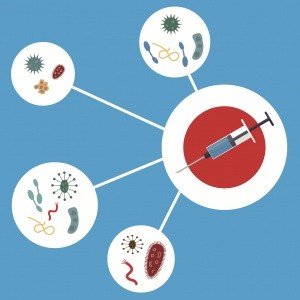Coronavirus (COVID-19) Best Practices Start the discussion!

What are Coronavirus (COVID-19) Best Practices?
What is Coronavirus (COVID-19) disease?
Coronavirus disease (COVID-19) is a new strain of coronavirus that was discovered in 2019 and has not previously been identified in humans. Coronaviruses (CoV) are a large family of viruses that can cause illnesses of different severity; ranging from the common cold to more severe diseases such as Middle East Respiratory Syndrome (MERS-CoV) and Severe Acute Respiratory Syndrome (SARS-CoV).
What are the most common symptoms of a coronavirus infection?
Common symptoms of a coronavirus infection include respiratory symptoms such as shortness of breath and breathing difficulties, fever and a dry cough. In the most severe cases, COVID-19 infection can cause pneumonia, severe acute respiratory syndrome, kidney failure or even death.
Coronavirus outbreak, development and treatment
COVID-19 first appeared in Wuhan, China in 2019 and has been spreading globally since. Health officials are still working to identify the exact source of this new coronavirus strain, with initial research pointing to contaminated seafood in a seafood market in Wuhan (as coronaviruses are zoonotic, meaning that they can be transmitted between animals and people).
The virus is spreading widely and quickly all over the world as there is no existing immunity in our community. Scientists are working on treatment and prevention methods; however, no vaccination is currently available (March 2020). At present, recommended treatment is similar to that advised for any other viral disease: reinforcement of the immune system and administration of anti-viral medication.
5 ways to prevent the spread of coronavirus - COVID-19 Best Practices that you should implement into your daily routine:
The virus can spread from person to person through close contact with an infectious individual (including 24 hours before they start showing any symptoms), contact with droplets from an infected person’s cough or sneeze, as well as touching contaminated objects and surfaces and then touching your mouth or face. Hence, day-to-day COVID-19 Best Practices to prevent the spread of the virus include:
COVID-19 Best Practice no. 1 : Washing your hands frequently.
Wash your hands with soap frequently and thoroughly for at least 20 seconds. Alternatively, you can use an alcohol-based sanitizer.
COVID-19 Best Practice no. 2 : Maintaining social distancing.
Social distancing includes keeping safe distance of at least 1meter between people, avoiding handshaking and other physical greetings as well as staying home if you are sick.
COVID-19 Best Practice no. 3 : Avoiding touching eyes, nose and mouth.
Avoid touching your face to prevent germs from getting into your respiratory system. Make sure that you clean and disinfect frequently touched surfaces on a daily basis (this includes tables, doorknobs, handles, phone screens, keyboards, etc.).
COVID-19 Best Practice no 4 : Developing healthy respiratory habits.
Developing very simple, yet extremely efficient habits such as coughing or sneezing in your elbow and using one-use tissues to help prevent germs from contaminating surfaces and infecting others.
COVID-19 Best Practice no 5 : Staying informed and following advice from your local authorities.
As uncertainty and fast-changing situations may cause distress or anxiety, staying informed will help you stay calm and prepared. Remember to stay up to date with newest information provided by your local authorities but avoid misinformation that may be available on different unreputable sites. Seek official advice and support through your government websites or the World Health Organisation (WHO).
Coronavirus (COVID-19) in Business Context and COVID-19 Business Best Practices:
The current pandemic of COVID-19 is heavily influencing all spheres of professional life, including day-to-day business operations and the economy as a whole. The scope of the impact on business and economy can be difficult to estimate for now but we have prepared a short list of potential implications. Coronavirus (COVID-19) Business Best Practices published on Eloquens can help you act quickly against these threats to your business activity.
1) Implications for businesses: - Short-term demand decrease: due to closures of “all but essential” commerce introduced in many countries, on-site retailers are no longer able to sell their goods which contributes to a substantial drop in demand and revenue.
- Remote work model: as a consequence of forced quarantines and home-isolation, the majority of office workers are required to work from home. In order to avoid a significant productivity decrease following such a change, new solutions and work principles need to be implemented.
2) Implications for the economy:
- COVID-19 related supply chain disruptions: due to transportation restrictions and limited movement of goods and people stemming from the outbreak of COVID-19, major supply chain disruptions may occur. It is important for businesses to find Best Practices with a view of minimising these disruptions.
- Significant losses for global tourism industry and tourism-related sectors due to COVID-19: as the tourism sector, like every economic activity with social impact, is based on interaction amongst people, COVID-19 related restrictions on interactions and the free movement of people will have a negative impact on this sector. Finding coronavirus (COVID-19) Best Practices is imperative for actors in the tourism sector in order to survive these difficult times.
Read more about Coronavirus (COVID-19) and Coronavirus (COVID-19) Best Practices here:
5 Ways To Prevent And Prepare For The Coronavirus



